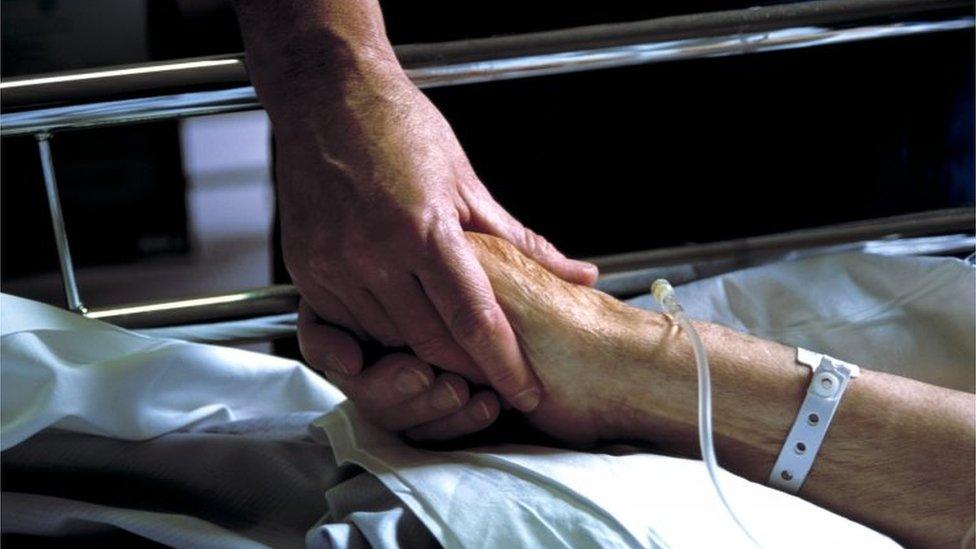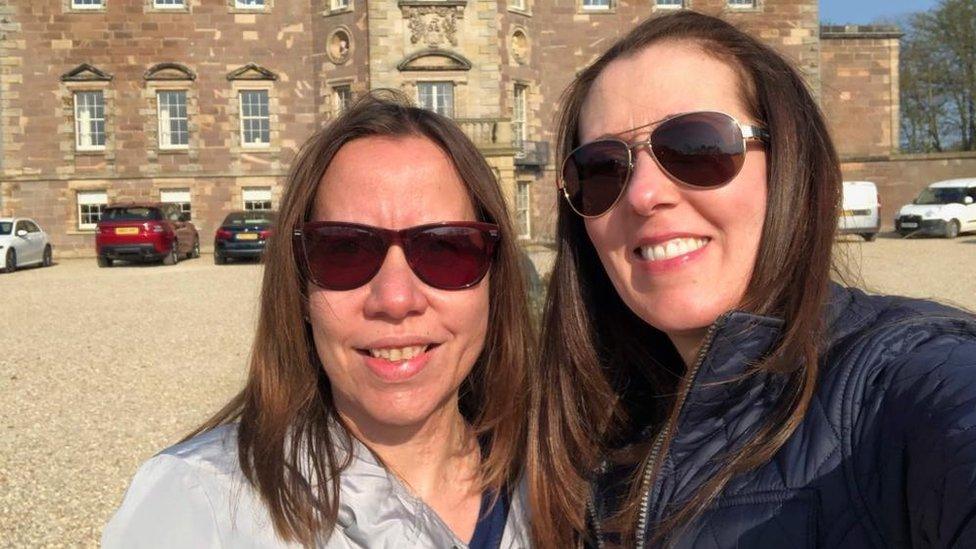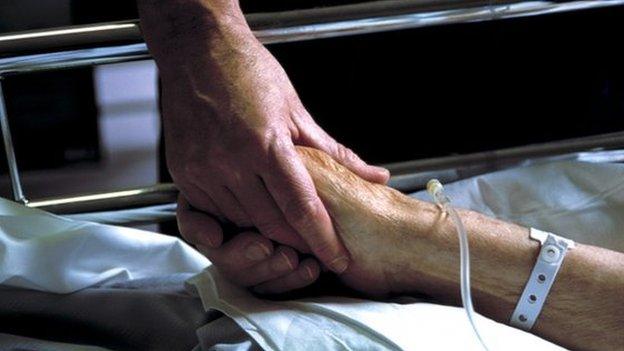Former Health Secretary Jeane Freeman says time is right for assisted dying bill
- Published
Jeane Freeman backs assisted dying bill
Former Scottish health secretary Jeane Freeman has told the BBC the time is right to make assisted dying legal.
Ms Freeman, who stepped down as an SNP MSP and minister at May's Holyrood election, said she backed the draft bill from Lib Dem MSP Liam McArthur.
It aims to introduce the right to an assisted death for terminally ill, mentally competent adults.
Ms Freeman said she thought the majority of Scottish people supported the move, with adequate safeguards.
Current health secretary Humza Yousaf was asked about the issue on BBC Scotland's Sunday Show and said he was "not persuaded" of the case to legalise assisted suicide.
Previous attempts to change legislation in Scotland have failed.
Those who argued against a change in the law have said it would undermine palliative care and the risks were too high.
They claimed it could put pressure on vulnerable patients to choose the option.
Mr McArthur introduced his new draft bill in June and a consultation on its contents is taking place.

The Scottish government has not said if it will support the bill although the previous attempt in 2015, originally brought forward by the late independent MSP Margo MacDonald, allowed each individual MSP to vote as they wished.
Ms Freeman, who was Scotland's health secretary for three years, was not a member of the Scottish Parliament at the time.
She told BBC Scotland's Sunday Show that she never spoke out on the issue when she was in government but made her views known in internal discussions.
"My bottom line is I would want this for myself and my loved ones.," she said.
"If that is what I want, and I do, I can't see how I could deny that to somebody else."
Campaigners against the plans have argued the "vast bulk of countries" do not allow people to end their own lives and warned that "incremental extension" of the law to include more people was inevitable.
They said vulnerable people might feel under pressure from relatives or health professionals or they may see themselves as being a burden and opt for ending their life "for the wrong reasons".
Terminal diagnosis
Campaigners also said it would fundamentally alter the doctor-patient relationship and devalue disabled people's lives.
Ms Freeman said the proposed assisted dying bill had safeguards in place to protect the process from abuse.
She said the draft bill was "tightly-framed" and would only apply to adults with a diagnosis of terminal illness and the mental capacity to make the decision.
"My feeling is the public in Scotland is a wee bit ahead of us on this, as they are on many things, and that there is a majority support for it," she said.
"Many would have had personal experience of a loved one or a close friend whose dying process has been filled with anguish and who wanted a different way of leaving us and that was not open to them.
"My gut feeling is the time is right for this and that our fellow citizens are of a mind that says, as long as the safeguards are there, this is the right thing to do."
Ms Freeman, who is now 68, said: "I think as you get older you are increasingly conscious of the limit to your lifespan."
Before she entered politics, she had various roles linked to the health service and said she saw circumstances where, even with the best palliative care, people were still in a situation where they wanted to be able to end their life.
She said she respected objections based on conscience or faith.
"But equally valid is the view of someone like me that says I think informed choice is important in every aspect of our life," she said.
Health secretary Mr Yousaf said he had "sympathy and empathy" for people who want the law changed but his concerns over the level of safeguards and potential for abuse mean he does not support it.
"My own personal view is that I'm not persuaded by the proposals, particularly because I'm not sure that we have stringent safeguards in place," he said.

Information and advice
If you or someone you know is struggling with issues raised by this story, find support through BBC Action Line.
Related topics
- Published18 November 2021

- Published5 July 2021

- Published20 June 2021

- Published27 May 2015
